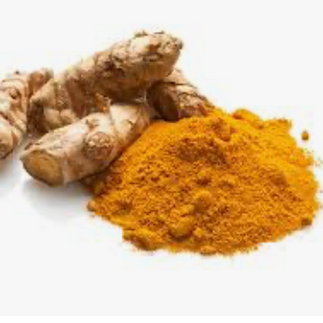Turmeric
- Ora Staff

- Aug 11, 2025
- 2 min read
Turmeric is a golden-yellow rhizome from the ginger family that has been used for thousands of years in Ayurveda, Traditional Chinese Medicine, and Southeast Asian cooking — not just for flavor, but as a powerful anti-inflammatory and healing herb. Its key active compound, curcumin, is responsible for many of its health benefits.
Potent Anti-Inflammatory Effects
Curcumin is one of the most studied natural anti-inflammatories.
Helps reduce chronic low-grade inflammation linked to conditions like arthritis, heart disease, metabolic syndrome, and neurodegenerative disorders.
Particularly useful for joint pain and stiffness in osteoarthritis and rheumatoid arthritis.
Antioxidant & Cell Protection
Curcumin neutralizes free radicals and boosts the body’s own antioxidant enzymes.
Protects against oxidative stress, which contributes to aging and chronic diseases.
Brain Health & Mood Support
May boost brain-derived neurotrophic factor (BDNF), a growth hormone that supports new neuron formation and brain plasticity.
Research suggests it may help improve memory and reduce the risk of Alzheimer’s disease.
Shows promise in elevating mood and reducing symptoms of depression when combined with standard treatments.
Heart & Circulatory Health
Improves endothelial function (the health of blood vessel linings), which can reduce the risk of heart disease.
Supports healthy cholesterol levels and reduces LDL oxidation.
May improve circulation and help prevent blood clots.
Digestive & Liver Support
Traditionally used to stimulate bile flow, aiding fat digestion.
May soothe symptoms of indigestion, bloating, and gas.
Has mild liver-protective properties, helping with detoxification.
Immune Support
Modulates the immune system — can stimulate immune response when needed, or calm excessive immune activity in autoimmune conditions.
Skin Health
Antimicrobial and anti-inflammatory properties help with acne, eczema, psoriasis, and wound healing.
Often used in topical masks and pastes for glowing skin in Ayurvedic beauty rituals.
Curcumin is poorly absorbed alone — take it with black pepper (piperine increases absorption by ~2000%) and a fat source (like coconut milk or olive oil).
Common forms: fresh root, dried powder, capsules, liquid extracts, or as part of “golden milk.”








Comments